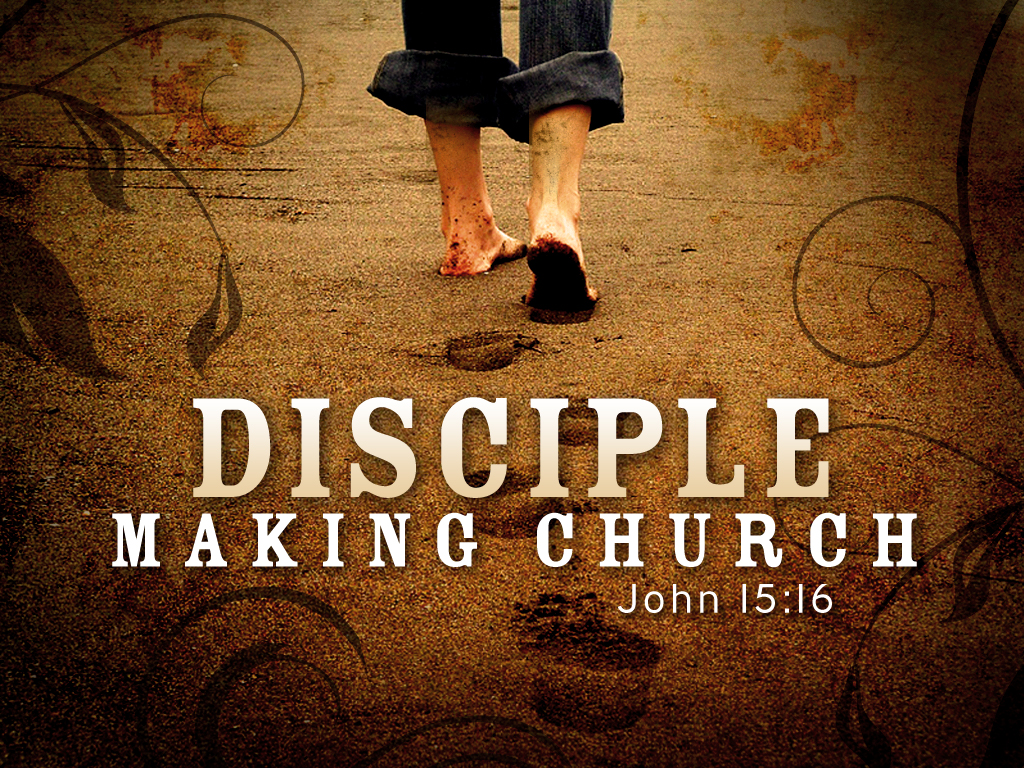
Matthew 28:19
Imagine a day when Jesus-style disciple making is the norm for the local church. Everyday Christians are engaged in relationships with people (inside and outside the church) so that they can show the love of Jesus and help people to trust and follow Him. Churches are known as disciple-making places, where Jesus-like people are created. And pastors are evaluated by the people they raise up and the disciple makers they have made in the Spirit’s power. Jesus’ message and Jesus’ methods dominate.
What will it take? We believe that this day will come as God moves among us and as God’s people live out certain beliefs. If the following beliefs resonate with you and you can support them, then we hope you will join us.

These beliefs are the DNA of a disciple-making movement.
1. We believe the gospel and it is our message — this good news is focused on Jesus as our Messiah (King) and His death, burial, and resurrection. All who respond to salvation are freely saved and called to discipleship, no exceptions, no excuses (Mark 8:34-38; 1 Corinthians 15:1-8). The gospel we preach and believe dictates the kind of disciples we are and the kind of disciples we make. If we attempt to make a Christlike disciple from a non-discipleship gospel, we will fail. A non-discipleship gospel is one that does not include discipleship as a natural part of the message and expectation.
2. We are compelled to be and make disciples of Jesus. We believe Jesus Christ is supreme and worthy of all devotion, worship, and emulation, and disciple making is a natural and necessary life response to Jesus. With laser focus, it was Jesus Himself who made disciples who could make disciples... and Jesus commands us to do the same (Matthew 28:16-20; John 20:21). We prefer to use the expression “disciple making” over “discipleship” because the former is closer to the words of the Great Commission and the latter is often mischaracterized (Matthew 28:18-20).
3. We believe Jesus is the model (for life and ministry). Jesus showed us how to live life and how to make disciples. We seek to emulate His method and model. As the sinless second Adam, Jesus was man as God intended man to be. He then told us,
Do the works I have been doing. — John 14:12
John said those who “claim to live in Him must live as Jesus did” (1 John 2:6). Paul understood this when he said, “Imitate me, just as I imitate Christ” (1 Corinthians 11:1 NLT). Discipleship demands us to “follow” the resurrected Christ and “imitate” the priorities and patterns of the incarnate Christ. We like the expression “Jesus’ model and method of disciple making” as a summary of what we do.
4. We believe love is the driving motive. The Great Commandment precedes the Great Commission. Loving God and loving people is the passion behind the priority, the motive behind the mission, the heart behind the hands. Love is the signature card of true disciples... disciple making cannot happen apart from loving and caring relationships... both tough and a tender love (1 Thessalonians 2). Larger ministries require more relational disciple makers to keep growing. Disciple making is relational and, as ministries grow, more relational disciples are needed.
By this everyone will know that you are My disciples, if you love one another. — John 13:35
5. We believe verifiable fruit is the measure. God’s agenda for each one of us is that we stay close to Him and bear “fruit,” “more fruit,” and then ultimately “much fruit, showing yourselves to be my disciples” (John 15:8). God transforms our hearts as we “remain in [Him]” and He leads us into lives of love (John 15:4, John 15:17). Jesus modeled the focus of love as He came to seek, save, and disciple people (Luke 19:10; Luke 6:40). Jesus masterfully showed how love produces disciples... reaching and developing His men and helping them grow from non-believers all the way to disciple-makers reproducing disciple makers (Matthew 28:19-20). There is a natural process of moving people from those who do not know Jesus all the way to becoming mature disciple-makers... and Jesus showed the model to us. In short, we haven’t truly made mature disciples until they are following Jesus’ model of love and helping to make more disciples... this is fruitful multiplication.
6. We believe Holy Spirit power is the means. Disciples cannot be made through fleshly efforts. Jesus, in His humanity, fully acknowledged His dependence on the Spirit. Disciple making is not just a good strategy... it is a way of life, accomplished through the fruit of the Holy Spirit living through a person’s yielded and holy life (2 Corinthians 3:16-17). If Jesus fully depended on the Holy Spirit’s power, how can we do any less?
The Holy Spirit will lead us to be obedient people who live holy lives to God’s glory.
7. We believe the local church is the primary environment for disciple making. The church is for discipleship, and disciples manifest the kingdom of God to the world (Colossians 1:28-29). When the church reverses this process and attempts to get the world to go to church instead of the church going to the world, you get chaos. Pastoral and ministerial work should be evaluated and rewarded based on how many disciple makers are produced and the kind of people a church sends into the world. Jesus was a man for others; the church, likewise, is for others. Any plan that does not create disciples who live for others is a failure.
8. We believe that equipping leaders is the linchpin of the movement. All Christians are called to be disciples who grow to help make disciples, using the unique gifts God has given each of us. Leaders are also called to grow a movement of disciple-making. This is called the church (2 Timothy 2:2). How Jesus built a movement differs from how Jesus made a disciple. If we are going to create a disciple-making movement in North America, it is our conviction we must train leaders in how Jesus built a movement. This is harder and takes more time, but in the end this will bear fruit that will remain. Practically, this means we must develop a team of disciple-making leaders (pastors), with various disciple-making best practices (church models), who can continue to fan the flame of disciple making.
9. We believe definitions are vitally important. (1) Our definition of disciple making — helping people to trust and follow Jesus (Matthew 28:18-20), which includes the whole process from conversion through maturation and multiplication; and (2) our definition of a disciple — a person who is following Christ, being changed by Christ, and is committed to the mission of Christ (Matthew 4:19 ESV).
10. We believe Jesus and Scripture are the basis. We believe the sixty-six books of the Bible are the authoritative, reliable, and ultimate standard for disciple making and life (2 Timothy 3:16-4:2) and that Jesus, as presented in the Bible and appropriately described by the Apostles’ Creed and the Nicene Creed, rightfully deserves our focus and our commitment to a life of full discipleship.

We want to fan the flames, pour gasoline on the fires of this kind of disciple-making movement, and we hope that your heart resonates with ours.
Making disciples of Jesus is God’s strategy to heal and redeem the world.
It is our conviction that a life well lived is a life devoted to this revolution. Won’t you join us?
* * *
Excerpted with permission from The Disciple Maker's Handbook by Bobby Harrington and Josh Patrick, copyright Bobby Harrington and Josh Patrick.




